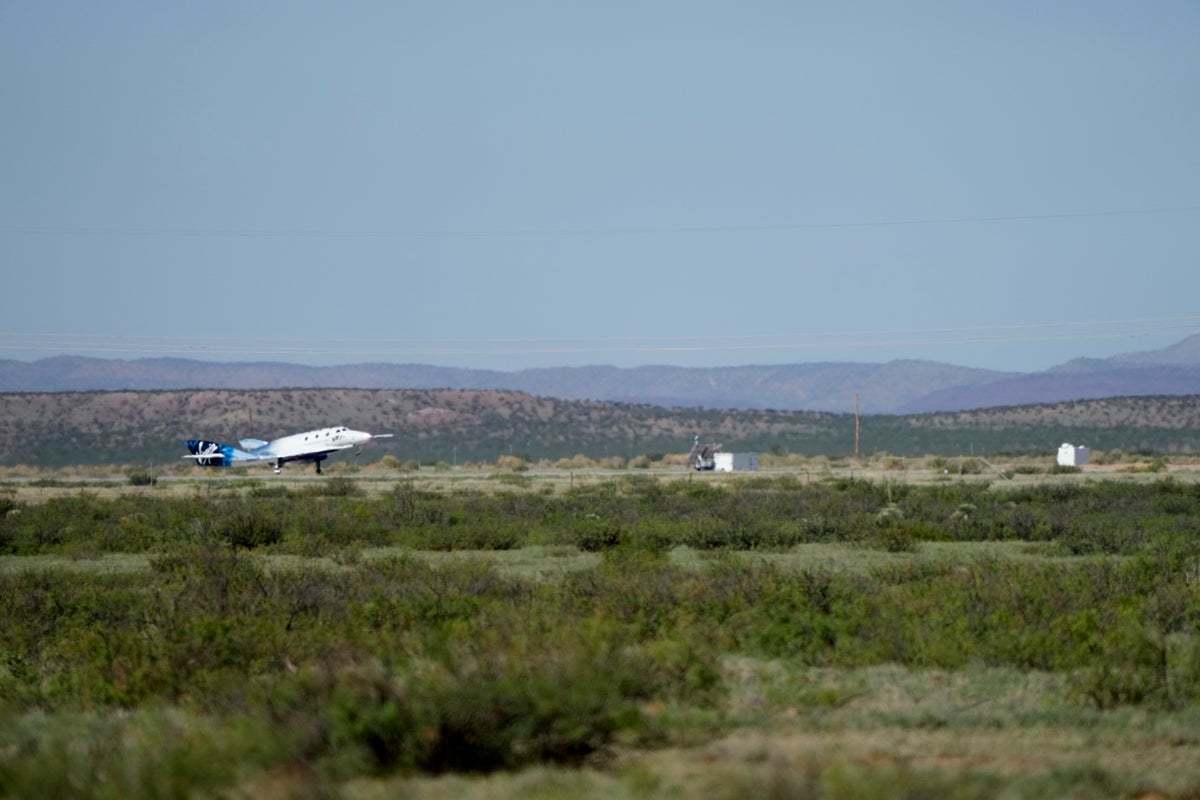
A mission that launched ancient human remains to space has raised ethical concerns among archaeologists who have questioned its scientific value.
On 8 September, two fossil remains of ancient human relative species Homo naledi and Australopithecus sediba were launched in a commercial spaceflight aboard Virgin Galactic’s spaceship VSS Unity.
The archaeological remains were dubbed “the oldest astronauts to travel to space”.
The fossils, held in a carbon fibre container, were first taken in a mothership from Spaceport America to an altitude of about 13-15km, from which VSS Unity separated and ignited its rocket engine for the climb to suborbital space.
“The journey of these fossils into space represents humankind’s appreciation of the contribution of all of humanity’s ancestors and our ancient relatives,” said Lee Berger, from the University of the Witwatersrand in South Africa.
“Without their invention of technologies such as fire and tools, and their contribution to the evolution of the contemporary human mind, such extraordinary endeavours as spaceflight would not have happened,” said Dr Berger, who played a major role in the archaeological discovery of the two species.
One of the fossils was the clavicle of Australopithecus sediba – a candidate species that likely gave rise to our own genus Homo – and the other one was a thumb bone of Homo naledi.
Both the fossils were uncovered at archaeological sites in the Cradle of Humankind World Heritage site just outside of South Africa’s Johannesburg.
“The fossils were carefully chosen not only for their symbolic importance, but also because they are among the most documented fossils of hominins in existence, with casts, scans and images available across the world due to our scientific and open access efforts,” said Bernhard Zipfel, curator of collections at the University of the Witwatersrand.
However, not everyone seems to be happy about the Virgin Galactic mission.
While gaining permit for the launch, documents revealed the fossils were categorised as “paleontological” and not “human” remains.
The main issue experts have raised on social media were that such fossilised bones should be treated and handled with respect as they are not just scientific specimens but also the remains of humanity’s collective ancestors.
Biological anthropologist Alessio Veneziano described in a thread on X, formerly Twitter, that there were four main issues with the mission, including “the lack of scientific justification for the flight” as well as “ethical issues surrounding respect for human ancestral remains”.
Dr Veneziano also expressed concerns about the special access Dr Berger had to the fossils that “few other researchers share”, adding that the space mission may also be a “misrepresentation of the practice of palaeoanthropology”.
“It speaks loudly about entitlement and privilege in a field where many people have difficulties accessing fossil material for proper scientific research,” said the X account of the Advances in Human Evolution, Adaptation and Diversity conference.
Archaeologist Sonia Zakrzewski from the University of Southampton in the UK echoed the same sentiments on X, calling the mission “21st century colonialism”.
“I am horrified that they were granted a permit. This is NOT science,” Dr Zakrzewski said, adding that the Virgin Galactic launch seemed like a “publicity stunt”.
The Independent has reached out to Virgin Galactic and Dr Berger.







